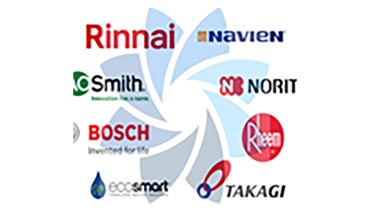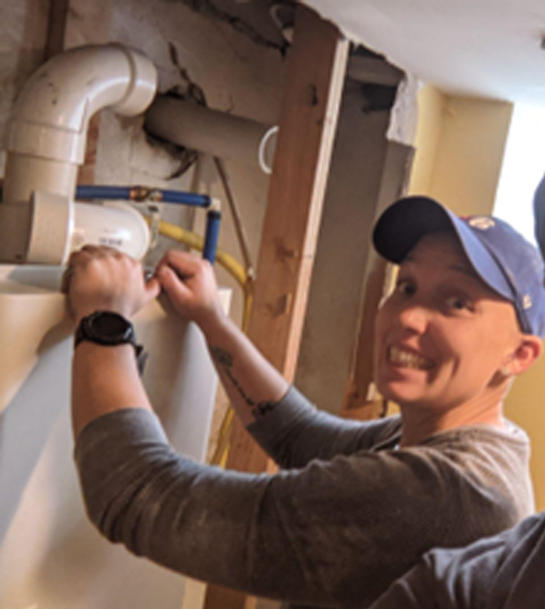TANKLESS WATER HEATERS- SPACE SAVING SCALABLE SOLUTIONS
Enjoy Going Tankless! The benefits are numerous, and we are certain you will enjoy using any of the brand-name tankless water heater models you select. At Blue Conservation, we want to make certain you also enjoy the service and installation of your new equipment and the use of it for many years to come.
Tankless Water Heater Equipment Models :
Our trained service and installation technicians have experience with all of the brand-name manufacturers and models of tankless water heaters and combi-boiler units for both commercial and residential use.

Ultra-HE Condensing Tankless Water Heater
Ultra-High-Efficiency Condensing Tankless Water Heaters extract and capture the heat released from the water heater unit’s exhaust, making them the most energy-efficient models available. Also, since the residual exhaust heat is used to produce the hot water, the exhaust gasses are cooler and less expensive venting material may be used.
Considerations for these models include:
- They require drainage of condensation.
- They are ideal for colder climates with lower groundwater temperatures.

High-Efficiency NonCondensing Tankless Water Heater
High-Efficiency Non-Condensing Tankless Water Heaters have only one heat exchanger and exhaust gas is vented out of the top of the unit. A simpler design has numerous advantages.
The advantages of high efficiency non-condensing tankless water heater units include:
- Lower upfront cost
- Easier to maintain
- No need to drain condensate
- Ideal for warmer climates with higher groundwater temperatures

Hybrid-"Tankless" Water Heater
Hybrid “Tankless” Water Heaters combine the advantages of tankless units with a traditional storage tank to accommodate peak demand, such as in a restaurant, hotel or multi-family dwelling.
Offering prompt tankless hot water service and installation.
Considerations for Installing a Tankless Water Heater
Blue Conservation is the Mid-Atlantic region’s top installer of tankless water heaters. We are also the friendliest. When you need assistance choosing the right equipment, we help you make the choice that is right for you. Then, we will install it properly and advise you on service and maintenance.
For equipment selection and installation, we will review with you the following:
Water Use [Gallons per Minute (GPM)] – The volume of water to be used at any one time and the flow-rate of the water will be used to make sure your unit is sized properly. Make a list of hot water devices and “star” the ones that may be used simultaneously (laundry, dishwasher, shower(s) etc.).
Energy / Power Source- As efficient as your tankless water heater is, it still needs a little bit of power from electric, natural gas or propane. Evaluate the existing electric or gas capabilities of your home or business to see if upgrades are needed prior to installing the tankless water heater. With larger model natural gas-powered tankless water heaters, we recommend a gas load analysis be conducted with your gas utility provider in order to determine whether or not the current gas meter or service line should be resized.
Location – Tankless water heater models utilizing fossil fuels (propane or natural gas) will require venting to the outside. Therefore, the location of your tankless water heater inside the building matters. Locating your tankless water heater near an outside wall will minimize the need for, and cost of, additional construction during the installation. Location of the water connection, electricity, gas connections and condensate drain for condensing units should also be considered.
Permits- Check with your local municipality to see if a permit is required, and, if so, identify the procedures and obtain the required forms. If you’re a DIYer, Blue Conservation can provide you with the required information; otherwise, we will handle the permitting for you. Additional permit fees may apply.
Once you’ve selected your unit and identified the desired location (remember: most units will be wall mounted), we will review the following five important considerations for your estimate:
- Venting – Most of the systems require 2” PVC venting and have maximum vent length restrictions.
- Gas – The units can utilize Propane or Natural Gas and require minimum BTU’s to operate.
- Electric- All of the units we install require electricity to operate.
- Condensate- Some of the units we install are ultra high efficient and require a condensate drain.
Water- Do you have a well or public water? Water quality is a very important part of selecting the right unit and planning for future maintenance.

